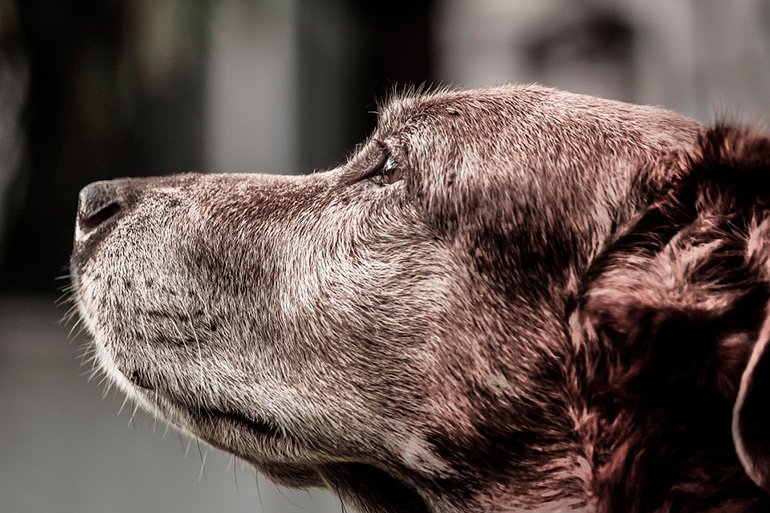One of hardest moments that dog lovers will face is when our best friend leaves us forever. We never want that day to come, of course, but unfortunately it’s inevitable. As a matter of fact, there are several signs that a dog is going to die soon, especially if he is old or very sick.
If you suspect that your dog might be in his last days, it’s important that you go to the veterinarian to get an accurate professional diagnosis that will tell you exactly what condition your dog is in and what your options are.
Your vet can also offer you some advice on how to care for your dog in this final stage of his life, if it turns out that nothing can be done. The main signs that a dog is going to die soon are:
He doesn’t want to go for a walk
A decrease in your dog’s normal physical activity or a reluctance to follow his usual routine can be a sign that his life is coming to an end. Now, this certainly doesn’t mean anytime a dog doesn’t want to go outside and play with you that he’s going to die.
You should understand that this change in behavior can also be a symptom of some non-terminal illness which makes your dog feel weak and uneager to walk. Check if this symptom is accompanied by others and take your dog to the vet if he continues to be apathetic.
He won’t eat or drink
When a dog loses his appetite, it means that something is wrong. If he is refusing his food or favorite treats, that is cause for concern, especially if he isn’t drinking water either. This could lead the dog to show signs of dehydration and start vomiting up bile. If the situation isn’t resolved, his organs could begin to shut down, and the dog will show signs of pain.
His behavior is abnormal
When a dog is very sick or about to die, he won’t behave normally. He might have some behavior problems related to his mood, seem fearful, more aggressive, or move abnormally.
Also, these changes can be accompanied by other symptoms like vomiting, diarrhea or urinary incontinence. When this happens, it is clear that your pup needs urgent medical attention from the vet.
Your dog’s vital signs are off
Finally, you should also be concerned if your dog starts to pant excessively or show signs of severe dehydration or fever. As a reference, the normal vital constants for a healthy dog are:
- Body temperature between 38 and 39 degrees Celsius (100.4-102.2 F)
- Resting heart rate of 90-140 beats per minute in small dogs, 70-110 bpm in medium dogs and 60-90 bpm in large dogs
- Between 10 and 30 breaths per minute
Changes in these vital constants can also be due to a treatable crisis, so time is of the essence in these cases. You should go see your vet as soon as possible so they can examine your dog. If, in addition to all this, you notice that your dog is very lethargic and is staying in one corner of the house, barely moving, it might not be long before he passes.
He tried to run away or look for a quiet spot
Many dogs, when they realize that the end is near, will separate themselves from the pack in order to die alone. It’s something instinctive that dogs have inherited from their wolf ancestors.
It’s also possible that, even if he doesn’t try to run away, he will look for a comfortable but isolated place in your house where he can take his last breath. If this happens, don’t scold him. Simply sit by his side and spend those last moments with him, petting him and loving him.
What can I do if my dog is dying?
In times like this, the best thing you can do is immediately contact your trusted veterinarian. They will be able to assess the situation based on your dog’s symptoms and clinical history, and they can advise you on what your options are.
If you already know that nothing can be done, you will be facing a complicated decision. Sometimes, when the animal is in a lot of pain, putting them to sleep can be an option to consider if you want to save them from more suffering.
If you have decided to wait it out till the end, the important thing is to give your dog all of your love and affection so that he knows he’s not alone. This is a very difficult moment for the whole family, but you should take consolation in the fact that you did everything possible to make sure your dog was well taken care of.
Another delicate moment is when you need to decide what to do with your pet’s body after he dies. Most people opt for cremation, although there are alternatives. In any case, the vet clinic or pet funeral home can tell you everything you need to do.
As with any other loved one, the passing of your furry friend will leave you with a profound feeling of loss. You will need to grieve until, little by little, you come to accept your pet’s death and start to feel a bit better.





